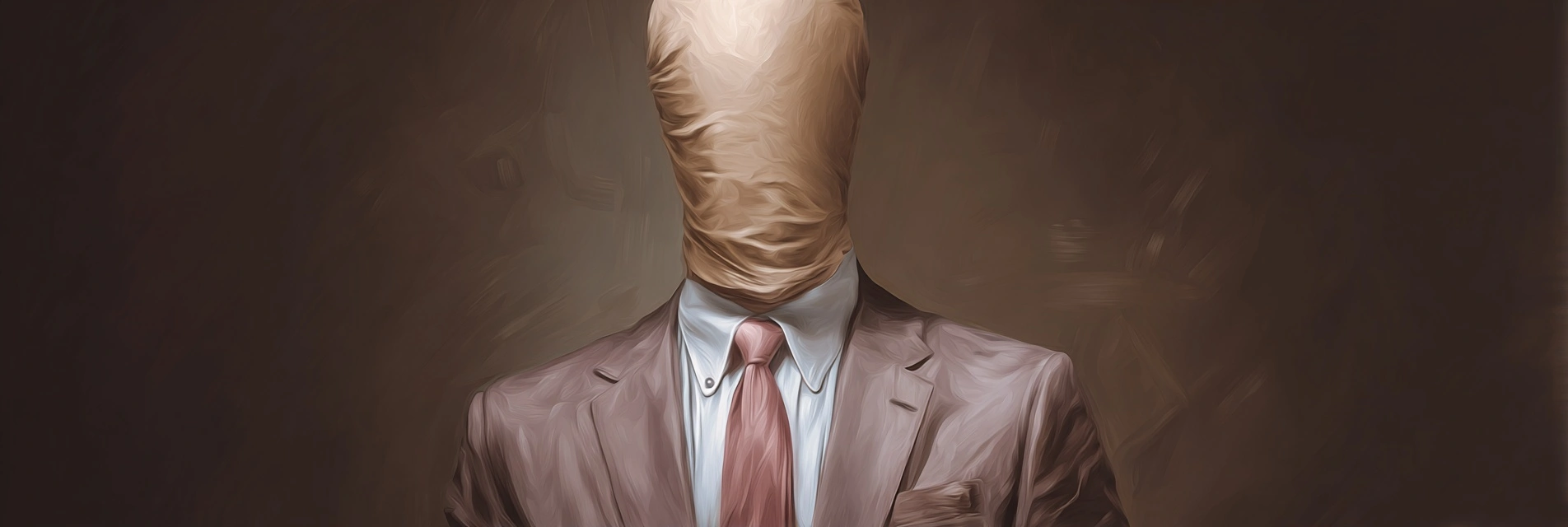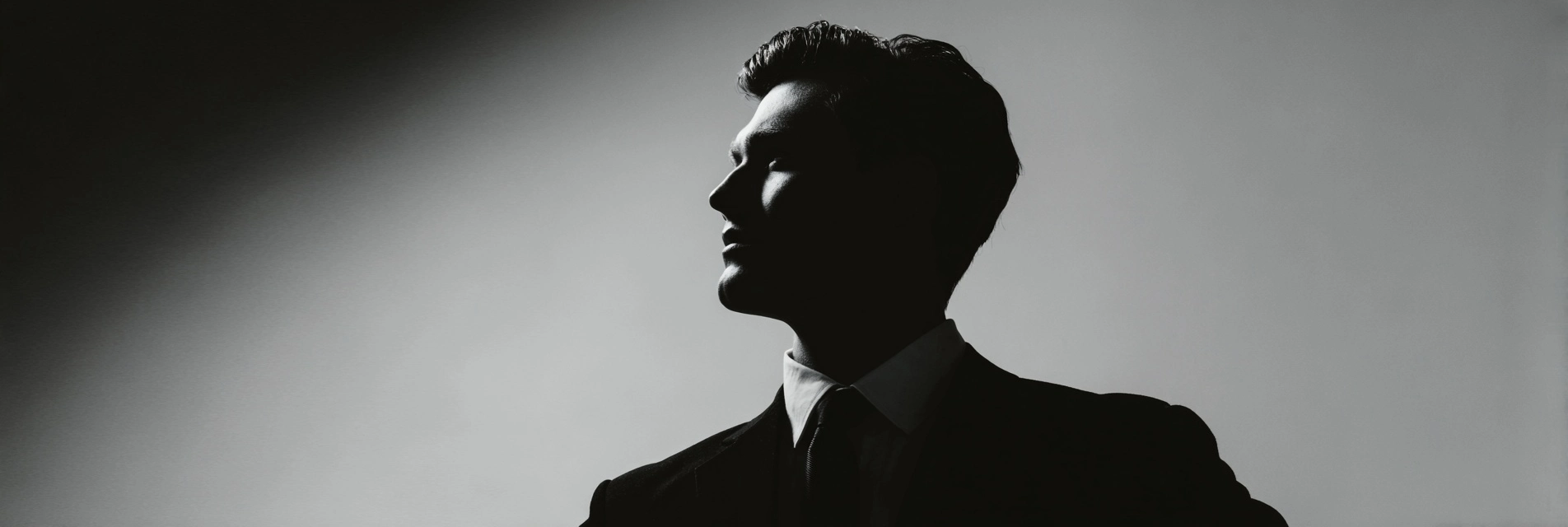
Balancing Ego and Humility in Personal Growth
Stories authored with the Help of Designfruit AI
Everyone walking The Path faces a paradox: believe in yourself too much, and reality will humble you; doubt yourself too much, and you'll never attempt anything great. The tension between ego and humility isn't a problem to solve - it's a dynamic to master.
Ego drives you to ignore critics, trust your vision, and persist when others quit. It filters out bad advice and mediocre thinking. But unchecked, it becomes entitlement - a brittle shell that shatters when confronted with reality's feedback.
Humility does the opposite: it keeps you learning from mistakes, adapting to evidence, and building resilience through repeated failure. But without ego's protective filter, humility invites paralysis - too many perspectives, too much deference, too little conviction.
The question isn't which trait to cultivate. It's how to balance both.

This essay examines why sustainable excellence demands this equilibrium, then demonstrates how two iconic entrepreneurs - Elon Musk and Steve Jobs - learned this lesson the hard way. Their journeys reveal a pattern: initial imbalance, costly failures, deliberate recalibration, and ultimately, world-changing impact.
Why Ego Matters
The Shield Against Mediocrity
Ego is self-belief that ignites action. In a world drowning in advice - most of it wrong - ego functions as a discerning filter. It lets you say "no" to conventional wisdom, resist groupthink, and trust your own judgment. Without it, you become a vessel for others' agendas, unable to commit to any vision long enough to see it through.
History proves this: the Renaissance, the Industrial Revolution, the digital age - all were driven by people who prioritized inner conviction over consensus. This isn't vanity; it's a survival mechanism for innovation. Every breakthrough required someone to dismiss the skeptics and persist when quitting seemed rational.
Why It's Non-Negotiable
Consider what happens without ego: you're open to "diverse perspectives," which sounds noble until you realize you're drowning in contradictory advice. You can't prototype because you're still polling opinions. You can't iterate because you're second-guessing every decision.
Breakthroughs don't emerge from maximum openness. They come from a filtered "no" to most things and an unshakable "yes" to one thing. Ego provides that filter.
The Breaking Point
But here's the trap: ego that exceeds your actual ability becomes toxic. When inflated beyond measure, it blinds rather than guides. You stop receiving feedback. Errors compound. The protective shield becomes a prison.
This is entitlement - ego's dark twin. You believe your own mythology. The feedback loop to reality breaks. And catastrophe follows.
Why Humility Matters
The Engine of Adaptation
If ego guards your vision, humility refines it. Humility is what lets you learn from failure without being destroyed by it. It's the posture that says: "I was wrong, here's what I learned, let's try again."
Without humility, every setback becomes an existential threat. You defend bad decisions to protect your self-image. You rationalize instead of iterate. You double down on failing strategies because admitting error feels like admitting weakness.
With humility, failures become data. Setbacks become curriculum. The path forward reveals itself because you're not spending energy on ego protection.
The Compound Effect
Studies show humble people recover from reversals faster. They ask "What can I learn?" instead of "Whose fault is this?" This isn't weakness - it's operational efficiency. Teams with humble leaders iterate faster because vulnerability replaces hierarchy. Ideas flow because challenge doesn't threaten identity.
Historically, the biggest paradigm shifts came from people humbled by prior failures. They pivoted with grace because their ego wasn't welded to a single approach.
The Other Trap
But humility alone? That's paralysis. Pure humility means endless learning, infinite perspective-gathering, perpetual doubt. You never commit. You never ship. You optimize for "being open" instead of "making impact."
Balance is everything.
The Formula for Excellence
Why You Need Both
Here's the uncomfortable truth: sustainable excellence requires both forces in dynamic tension.
- Too much ego → Hubris → Broken feedback loops → Catastrophic failure
- Too much humility → Paralysis → No conviction → Wasted potential
- The sweet spot → Strong vision + Rapid learning → Enduring impact
This isn't about finding a static "middle ground." It's about developing a feedback mechanism that automatically adjusts the ratio based on results. When you're breaking new ground, lean into ego. When reality punches back, lean into humility. Repeat.
The goal is simple: Keep Ego ÷ Ability < 1
When this ratio exceeds 1, you break the feedback loop to reality. When it's well below 1, you lack the conviction to attempt anything significant. The magic happens at the edge - just enough ego to act decisively, just enough humility to course-correct rapidly.

Exemplars of the Balanced Path
Journeys of Musk and Jobs
No exploration of this equilibrium is complete without examining two architects of modern innovation whose lives embody its profound demands: Elon Musk and Steve Jobs. Their trajectories - marked by ego's exhilarating ascents and humility's humbling descents - offer a masterclass in synthesis, where initial imbalances yield to integrated mastery.
Elon Musk
Reality-Bending Vision Tempered by Self-Awareness
Elon Musk's odyssey exemplifies ego as accelerant, tempered by humility's recalibrations. Early ventures like SpaceX and Tesla demanded an unyielding self-belief, a "reality-bending" conviction that dismissed skeptics' timelines as mere obstacles. This ego-fueled audacity birthed reusable rockets from explosive failures and electric vehicles from production infernos, filtering "misguided advice" through a lens of sheer determination.
The Formula for Self-Correction
Yet Musk's genius lies in his deliberate ego-smashing. As he articulated in a June 2025 address at Y Combinator's AI Startup School:
A major failure mode is when ego to ability ratio is much greater than 1. If your ego to ability ratio gets too high, you're going to basically break the feedback loop to reality.
This formula - Ego ÷ Ability < 1 - became his mantra, evident in public pivots like Tesla's near-bankruptcy admissions, where he owned missteps to rally teams toward iteration. Humility surfaced in raw confessions of decision-making torment, preserving the "reinforcement learning loop" essential for breakthroughs.
By 2025, amid ventures like Neuralink's ethical tightropes, Musk embodied balance: ego propelling multi-planetary dreams, humility ensuring they remain tethered to empirical truth.
Steve Jobs
The Prodigal Return Forged in Exile
Steve Jobs' arc mirrors this dialectic with even starker contrasts - a prodigal return forged in exile's humility.
The Reality Distortion Field
In Apple's nascent days, Jobs wielded what colleagues termed a "reality distortion field" - an ego charisma that convinced teams to achieve the improbable, like the Macintosh's graphical revolution, by warping deadlines and dismissing dissent as delusion. This force, while birthing icons, bred alienation: arbitrary dismissals and micromanagement eroded trust, culminating in his 1985 ouster - a humbling exile that exposed ego's isolating toll.
The Wilderness Years
In the wilderness of NeXT and Pixar, failures abounded - commercial flops alongside creative sparks - teaching Jobs to feign patience when it faltered and to critique outputs, not individuals. He later reflected:
I think all of us need to be on guard against arrogance, which knocks at the door whenever you're successful.
This acknowledgment captured ego's insidious return even after hard-won lessons.
The Renaissance
Reinstated in 1997 amid Apple's brink, the tempered Jobs orchestrated a renaissance: iPod prototypes pushed through relentless "why"-driven debates, iPhone iterations owned as collective v1 flaws, all while explaining visions to foster buy-in. This balance resurrected a faltering giant into a trillion-dollar titan.
Life's Fragility
In a poignant 2010 email to a fan musing on mortality, Jobs distilled the lesson simply:
Life is fragile.
Penned amid his own health battles, it echoed his Stanford commencement wisdom:
Remembering that you are going to die is the best way I know to avoid the trap of thinking you have something to lose.
For Jobs, ego launched paradigms; humility ensured their humanity.
Musk and Jobs, through ego's tempests and humility's calms, affirm the equilibrium's potency: a harmony where assertion fuels flight and surrender secures landing. In their shadows, the broader imperative gleams - cultivate both, lest one devour the other.
For in this balance resides not just excellence, but the quiet audacity to endure.
How Environment Shapes the Ego-Humility Balance
The Invisible Sculptor
Your surroundings - whether the bustling anonymity of a megacity, the tight-knit rhythms of a rural village, or the layered norms of a society - act as an invisible sculptor on the ego-humility equilibrium. They don't just frame your choices; they subtly (or not so subtly) prime you toward one pole or the other, influencing how you assert yourself, process feedback, and rebound from setbacks.
Far from uniform, these environments exert distinctly varied effects, shaped by cultural values, urban design, social pressures, and even physical layouts. What blooms as resilient confidence in one setting might curdle into entitlement in another, turning the balance into a context-dependent art.
Cultural Forces
The Fabric of Identity
Cultural societies embed ego and humility into the very fabric of identity, creating radically different baseline conditions.
Individualistic Cultures: Ego as Engine
In individualistic cultures - often Western-leaning, where self-promotion is a survival skill - ego gets amplified as the engine of success, rewarding bold pitches and unapologetic ambition. Here, humility can feel like a liability, a whisper drowned by the roar of personal branding, potentially stunting the vulnerability needed for deep growth.
Think: Silicon Valley pitch meetings, New York networking events, Los Angeles auditions. The environment demands ego-forward performance.
Collectivist Cultures: Humility as Social Glue
Contrast that with collectivist societies, prevalent in many East Asian or Indigenous contexts, where humility is the social glue - emphasizing harmony, deference to elders, and group welfare over individual spotlight.
A gesture like touching feet in greeting, common in some South Asian traditions, isn't subservience but a deliberate ego-surrender for blessings and connection, fostering a humility that builds communal resilience but risks suppressing the assertive spark for innovation.
The Data Behind the Divide
Research underscores these divergences: sociodemographic factors, including racial and ethnic backgrounds, correlate with varying humility levels. Groups like Arab Americans and African Americans report higher baseline humility, possibly tied to histories of communal survival and cultural emphasis on modesty.
The takeaway? Not all societies are equal. Your origin story - be it a status-chasing tech hub or a tradition-bound village - can tilt the scales, making ego a celebrated hero in one and a quiet villain in another.

Urban Environments
Built Spaces That Hack Your Psychology
Zoom in to cities, and the effects get even more granular, mediated by built environments that hack your psychology daily.
High-Density Urban Cores: Ego Amplifiers
High-density urban cores, like those in sprawling metropolises, often crank up ego's volume. The constant visibility - think LinkedIn-fueled networking in glass towers - breeds a performative confidence, where self-esteem ties to social climbing and quick wins.
But this comes at a cost:
- Noise pollution erodes mental clarity
- Cramped spaces heighten defensiveness
- Inequality spikes trigger comparison anxiety
- Urban dwellers report elevated mental health risks from these stressors The environment pushes you toward ego as protection against the chaos.

Green Spaces: Humility Cultivators
Flip to greener, lower-density suburbs or walkable neighborhoods with ample parks, and the dynamic shifts dramatically. Access to nature buffers ego's excesses, promoting reflective humility through restorative walks that quiet the inner critic and invite "what can I learn?" mindsets.
Studies show low-density setups enhance feelings of safety and comfort, reducing negative moods and allowing humility to flourish as a secure ego byproduct - less scramble for validation, more space for authentic resets.
Neighborhood Quality: The Final Variable
Neighborhood quality seals the deal:
- Tranquil, resource-rich areas boost collective self-esteem via safety and pro-social vibes
- Deprived zones amplify isolation, pushing toward ego as fragile armor
Every city pulses differently - a Tokyo subway's disciplined flow might hone understated humility, while a Miami beachfront's flash could inflate ego into spectacle.
The Practice
Cultivating Meta-Awareness
In essence, no two surroundings are interchangeable. They're bespoke influencers, each nudging the balance toward assertion in competitive arenas or surrender in supportive ones.
The Key: Intentional Counterbalancing
The solution isn't to relocate every time the balance tips. It's to cultivate meta-awareness - spotting how your locale primes you, then countering with intentional practices:
If your environment amplifies ego:
- Seek cross-cultural experiences that center humility
- Schedule regular nature escapes
- Join communities that value vulnerability
- Practice deliberate listening over performing
If your environment suppresses ego:
- Find spaces that reward bold expression
- Build peer groups that encourage assertion
- Practice self-advocacy in low-stakes settings
- Expose yourself to individualistic contexts
The Diagnostic Question
Ask yourself: How is your current spot tipping the scales? Are you in a glass tower that rewards ego performance? A tight-knit community that punishes standing out? A cramped apartment that breeds defensiveness? A leafy suburb that invites reflection? Your answer determines your practice. The environment will always push - your job is to push back with precision.
Surroundings aren't neutral. They're active forces sculpting your ego-humility balance daily, often invisibly. The cultures you inhabit, the cities you navigate, the neighborhoods you call home - all exert gravitational pull.
Mastery lies in awareness. Not in escaping your environment, but in understanding its influence clearly enough to compensate deliberately.
Only then can you maintain the balance that excellence demands, regardless of where you stand.